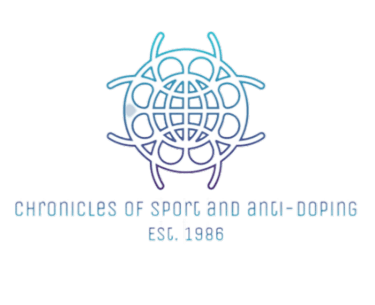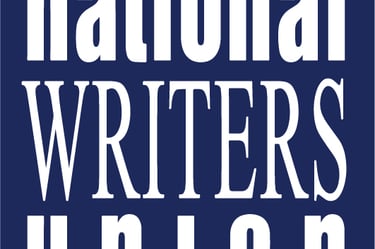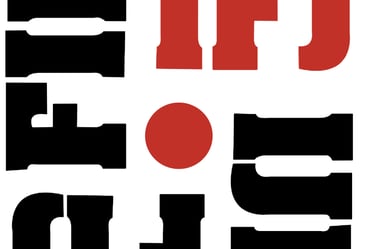The Conviction of Yoshikazu Taniguchi: A Call for Integrity in the Olympic Movement


The Tokyo District Court, on Friday, delivered its verdict in the case of Yoshikazu Taniguchi, a former director and executive of the Japanese agency Daiko. Taniguchi was found guilty of providing six million yen (€30,780) to Haruyuki Takahashi, a former executive of the Olympic Organising Committee.
The conviction of Yoshikazu Taniguchi sent shockwaves through the business community in Japan. Taniguchi had been a prominent figure in the corporate world, known for his strategic thinking and sharp business acumen. Many had admired his success and considered him a role model for aspiring entrepreneurs. However, the court's verdict tarnished Taniguchi's reputation and brought to light a dark side of his otherwise illustrious career. The prosecution presented compelling evidence that Taniguchi had knowingly and willingly engaged in illegal activities, undermining the integrity of the Olympic Organising Committee. During the trial, it was revealed that Taniguchi had orchestrated a scheme to funnel funds to Takahashi, who was involved in various corrupt practices within the committee. The money provided by Taniguchi was used to bribe officials and secure lucrative contracts for Daiko, giving the company an unfair advantage over its competitors. The court's decision to find Taniguchi guilty was based on a thorough examination of the evidence presented. Witnesses testified to Taniguchi's involvement in the bribery scheme, providing detailed accounts of his actions and conversations. Financial records also demonstrated the flow of funds from Daiko to Takahashi's accounts, leaving little room for doubt regarding Taniguchi's culpability. The conviction of a high-profile executive like Taniguchi sent a strong message to the business community about the consequences of engaging in corrupt practices. It highlighted the importance of upholding ethical standards and maintaining transparency in corporate dealings. The case served as a wake-up call for companies to strengthen their internal controls and ensure that employees adhere to strict ethical guidelines. In the aftermath of the trial, Daiko faced significant reputational damage. The company's stakeholders expressed their disappointment and concern over the actions of its former director. Daiko's management swiftly implemented measures to restore trust and rebuild its reputation. They launched an internal investigation, cooperating fully with the authorities to uncover any further wrongdoing and hold those responsible accountable. The conviction of Yoshikazu Taniguchi will undoubtedly have far-reaching implications for the Japanese business landscape. It serves as a stark reminder that no individual, regardless of their status or achievements, is above the law. The case will likely lead to increased scrutiny of corporate practices and stricter regulations to prevent similar instances of corruption in the future. As the dust settles on this high-profile trial, the business community in Japan is left grappling with the fallout. The conviction of Yoshikazu Taniguchi serves as a cautionary tale, reminding executives and entrepreneurs of the importance of integrity and ethical conduct in the pursuit of success. It is a reminder that the consequences of engaging in corrupt practices can be severe, not only for individuals but also for the organizations they represent.The court's verdict sent shockwaves throughout the Olympic community and beyond. It was a clear message that corruption and unethical behavior would not be tolerated, especially within an organization that prided itself on promoting fair play and integrity. The case of Taniguchi highlighted the need for increased transparency and accountability within the Olympic Committee.
As news of the verdict spread, many questioned how widespread this issue was within the organization. Rumors of other officials involved in similar illicit activities began to surface, casting a shadow of doubt over the integrity of the Olympic Games. The public demanded answers and called for a thorough investigation into the matter.
The International Olympic Committee (IOC) took immediate action in response to the Taniguchi case. They launched an internal investigation to identify any other individuals involved in corrupt practices and to implement stricter regulations to prevent such incidents in the future. The IOC recognized the importance of restoring public trust and preserving the integrity of the Olympic Games.
The investigation revealed that there were indeed other officials involved in bribery and financial misconduct. The extent of the corruption was shocking, with evidence pointing to a network of individuals who had been exploiting their positions for personal gain for years. The revelations were a blow to the credibility of the Olympic Committee and raised questions about the effectiveness of their existing anti-corruption measures.
In response to the findings, the IOC implemented a series of reforms aimed at preventing and detecting corruption within the organization. They established an independent ethics commission tasked with investigating allegations of misconduct and ensuring that all members of the Olympic Committee adhered to a strict code of conduct. Additionally, they introduced mandatory financial disclosures for all officials to increase transparency and accountability.
These reforms were met with mixed reactions. Some applauded the IOC's commitment to addressing the issue head-on, while others remained skeptical, questioning whether these measures would be enough to root out corruption entirely. The Taniguchi case had exposed a deep-seated problem within the Olympic Committee, and many believed that more drastic action was needed to restore faith in the organization.
As the Olympic Games approached, the focus shifted from the scandal to the athletes who had dedicated their lives to their respective sports. The hope was that the actions taken by the IOC would ensure a fair and clean competition, allowing the athletes to showcase their talents without the shadow of corruption hanging over them.
The Implications for the Olympic Organising Committee
This conviction has significant implications for the Olympic Organising Committee, as it raises questions about the integrity and transparency of the organization. The committee must now take immediate steps to restore public trust and ensure that similar incidents do not occur in the future.
Transparency and accountability are crucial for any organization involved in hosting an international event of this magnitude. The Olympic Games represent the pinnacle of athletic achievement and serve as a platform for promoting unity and fair competition. Any actions that undermine these principles tarnish the reputation of the Games and erode public confidence.
The first step the Olympic Organising Committee should take is to conduct a thorough internal investigation into the circumstances surrounding this conviction. They need to identify any potential lapses in their processes and procedures that allowed this incident to happen. This investigation should be transparent and independent, involving external experts to ensure objectivity and credibility.
Once the investigation is complete, the committee should release a detailed report outlining their findings and the actions they plan to take to prevent similar incidents in the future. This report should be made available to the public and media, demonstrating their commitment to transparency and accountability.
In addition to the internal investigation, the committee should also consider implementing stricter background checks and vetting processes for all individuals involved in the organization of the Olympic Games. This includes not only the athletes but also the staff, contractors, and volunteers. By ensuring that everyone associated with the Games has undergone thorough screening, the committee can minimize the risk of any misconduct or criminal activity.
Furthermore, the committee should establish a dedicated ethics and compliance department that oversees all operations related to the Games. This department would be responsible for developing and enforcing a code of conduct for all individuals involved, as well as conducting regular audits and risk assessments to identify any potential vulnerabilities.
To regain public trust, the Olympic Organising Committee should also engage in proactive communication and outreach efforts. They should be transparent about the steps they are taking to address the issue and provide regular updates to the public. This can be done through press releases, public statements, and social media updates.
Additionally, the committee should collaborate with external organizations and experts in the field of ethics and governance to ensure they are following best practices and implementing effective measures to prevent any future incidents. By seeking external guidance, the committee can demonstrate their commitment to learning from this experience and making necessary improvements.
In conclusion, the conviction of an individual associated with the Olympic Organising Committee raises serious concerns about the integrity and transparency of the organization. To restore public trust and uphold the values of the Olympic Games, the committee must conduct a thorough investigation, implement stricter vetting processes, establish an ethics and compliance department, and engage in proactive communication efforts. Only by taking these steps can the committee ensure that similar incidents do not occur in the future and regain the confidence of the public.
Rebuilding Trust and Restoring Integrity
In light of this conviction, it is imperative that the Olympic Organising Committee takes swift and decisive action to rebuild trust and restore integrity within the organization. This process should include:
1. Conducting a Thorough Investigation
The committee must conduct a thorough investigation to uncover any other instances of misconduct or corruption. This investigation should be transparent and independent, ensuring that all findings are made public.
By conducting a comprehensive investigation, the committee can identify any systemic issues that may have contributed to the misconduct. This will allow them to address the root causes and implement appropriate measures to prevent similar incidents in the future. Furthermore, the transparency of the investigation will demonstrate the committee's commitment to accountability and rebuilding trust.
2. Implementing Strict Anti-Corruption Measures
The committee should establish and enforce strict anti-corruption measures to prevent similar incidents from occurring in the future. This may include enhanced financial oversight, mandatory ethics training for all members, and the establishment of a confidential reporting system for whistleblowers.
Enhanced financial oversight will ensure that all financial transactions are closely monitored and audited, reducing the risk of embezzlement or bribery. Mandatory ethics training will provide committee members with the knowledge and tools necessary to make ethical decisions and recognize potential conflicts of interest. Additionally, a confidential reporting system will encourage individuals to come forward with any information regarding misconduct, without fear of retaliation.
3. Collaborating with External Organizations
The Olympic Organising Committee should collaborate with external organizations, such as anti-corruption bodies and independent auditors, to ensure that best practices are followed and that the highest standards of integrity are maintained.
By seeking guidance and expertise from external organizations, the committee can benefit from their experience in combating corruption and implementing effective integrity measures. This collaboration will provide an additional layer of accountability and ensure that the committee is held to the highest standards of transparency and integrity.
4. Communicating Transparently with the Public
Open and honest communication with the public is essential in rebuilding trust. The committee should provide regular updates on the progress of their efforts to address the issue, as well as any new measures implemented to prevent future misconduct.
Through regular communication, the committee can demonstrate their commitment to transparency and accountability. This will allow the public to track the committee's progress in rebuilding trust and restoring integrity, fostering a sense of confidence in the organization's ability to address and rectify past issues.
In conclusion, rebuilding trust and restoring integrity within the Olympic Organising Committee will require a multi-faceted approach. By conducting a thorough investigation, implementing strict anti-corruption measures, collaborating with external organizations, and communicating transparently with the public, the committee can take significant steps towards regaining the trust and confidence of stakeholders. It is only through these concerted efforts that the committee can move forward and ensure that the Olympic Games continue to uphold the highest standards of integrity and fairness.
The Olympic Games have always been a platform for athletes to showcase their skills, determination, and sportsmanship. These events transcend the boundaries of nations and cultures, uniting people from all corners of the globe. The Olympic Games embody the values of fair play, respect, and camaraderie, making them a beacon of hope and inspiration for millions of people worldwide. The recent conviction of Yoshikazu Taniguchi for corruption and bribery is a clear indication that any attempts to compromise the integrity of the Olympic Games will be met with severe consequences. This verdict serves as a stern warning to all individuals and organizations involved in the planning and execution of these events. It sends a powerful message that unethical practices will not be tolerated and that the Olympic spirit must be upheld at all costs. The Olympic Games are not just about winning medals; they are about fostering a sense of unity and friendship among nations. Athletes from different backgrounds come together to compete on a level playing field, pushing the boundaries of human potential. The importance of fair competition cannot be overstated. It is what sets the Olympic Games apart from other sporting events and makes them a symbol of hope and inspiration for generations to come. To ensure the integrity of the Olympic Games, it is essential that all stakeholders involved prioritize ethics and integrity. This includes the International Olympic Committee (IOC), national Olympic committees, event organizers, sponsors, and even the athletes themselves. Transparency, accountability, and a commitment to fair play must be at the forefront of every decision and action taken. Furthermore, the conviction of Yoshikazu Taniguchi should serve as a catalyst for reform within the Olympic movement. It is an opportunity to reassess existing processes, strengthen regulations, and implement stricter measures to prevent corruption and bribery. The IOC and other governing bodies must work together to create a robust framework that upholds the highest standards of ethics and ensures the Olympic Games remain a beacon of integrity and fair competition. In conclusion, the Olympic Games hold immense cultural and symbolic value. They represent the best of humanity, showcasing the power of sports to bring people together, transcend differences, and inspire greatness. Upholding the Olympic spirit is not just a moral obligation; it is a responsibility that every individual and organization involved in these events must embrace. By doing so, we can ensure that the Olympic Games continue to serve as a testament to the power of unity, friendship, and fair competition.



